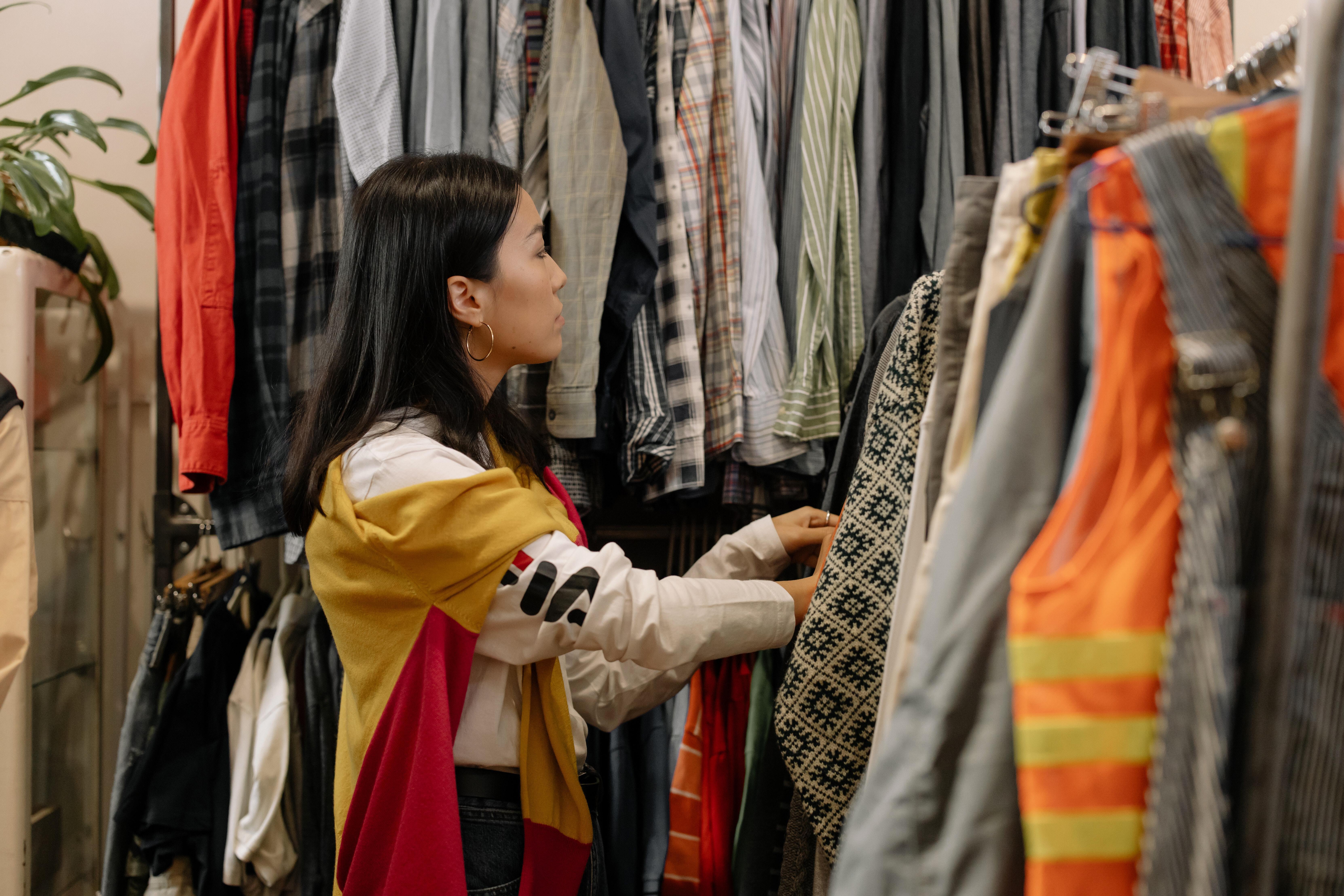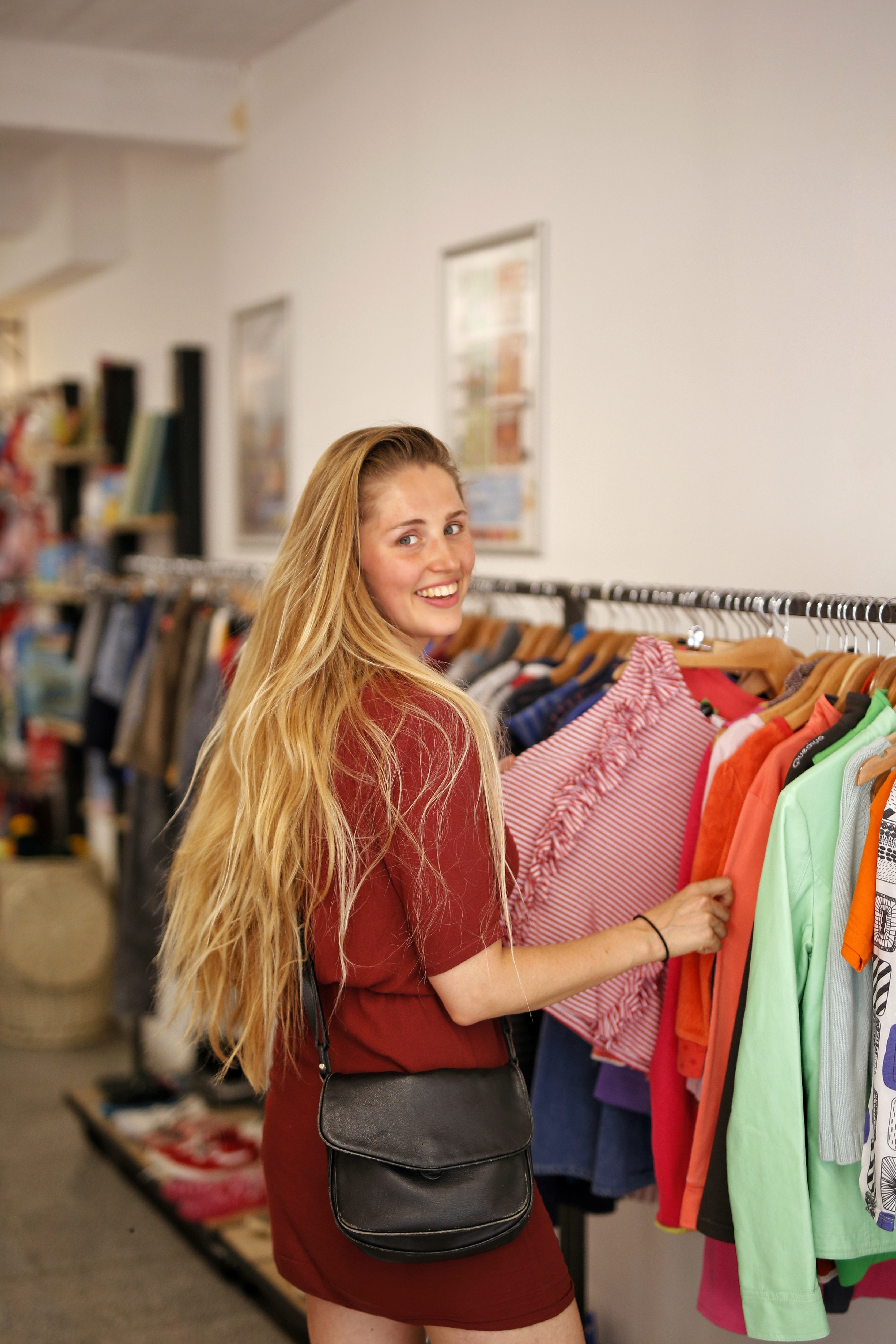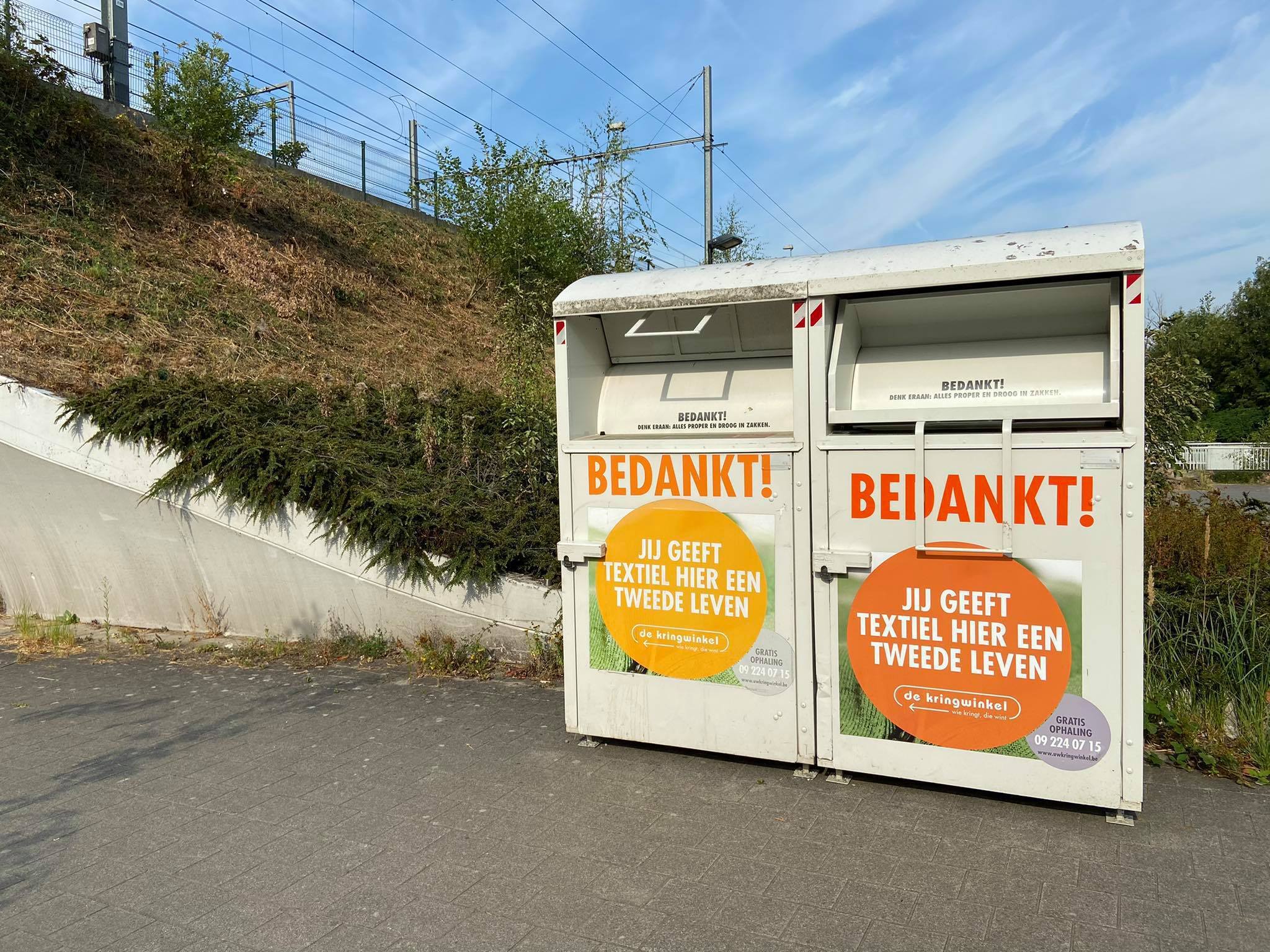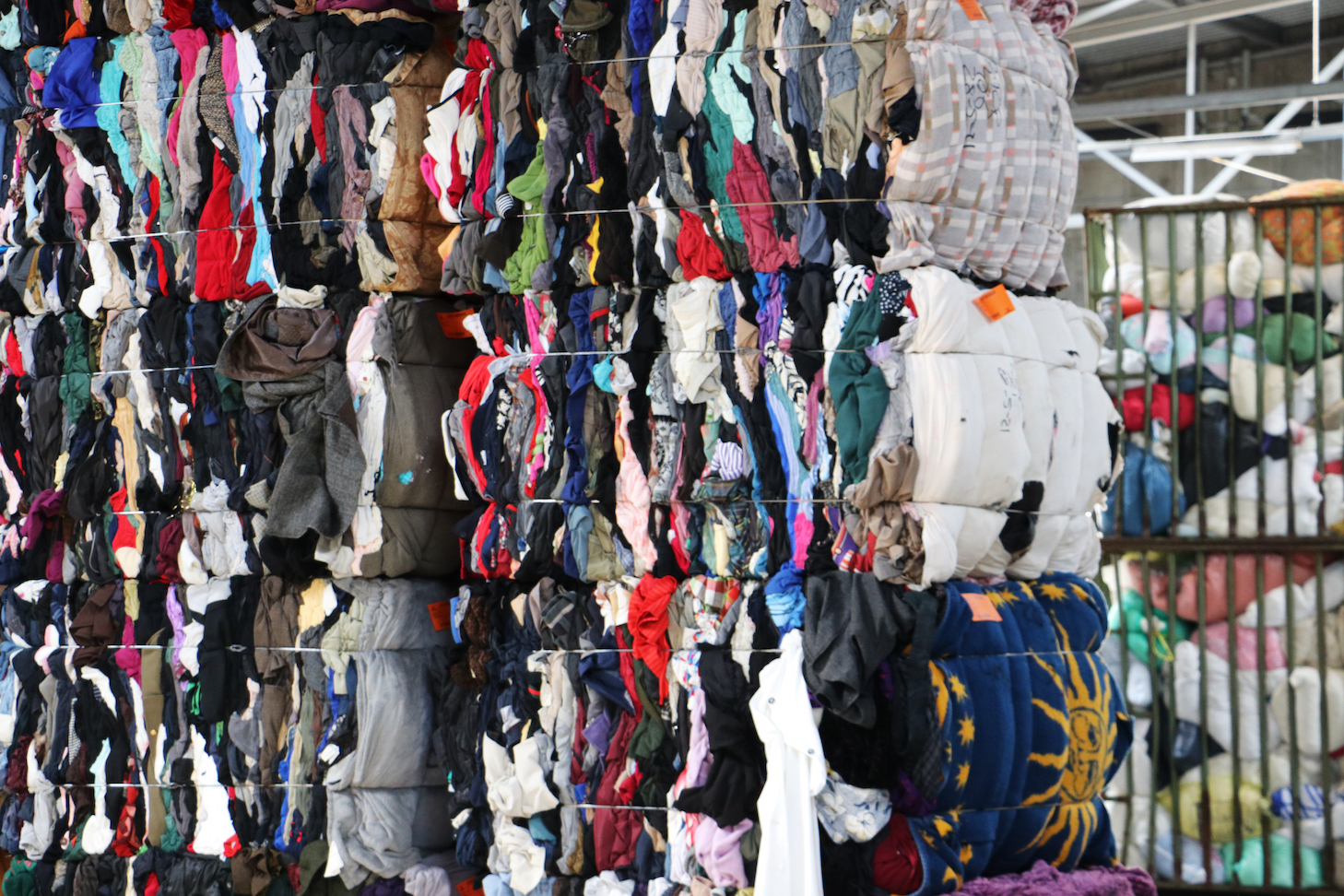
10 February 2026
Cradle to Cradle: How design determines circularity
- Greenwashing
- Reuse
Second-hand, vintage clothes are trending! This is clearly visible in the street scene. The well-known second-hand chains Think Twice and Episode are extremely popular with young people. The shops have a trendy image and shopping there is seen as a sustainable choice. But is that really the case? Have you ever wondered where this large amount of vintage clothing comes from and how it ends up on shop shelves? COSH! went in search of answers and tries to clarify the business flow of these second-hand chains as much as possible.

Think Twice, the well-known second-hand clothing chain, now has ten shops in Belgium and was recently hailed in the press as a leading example of a local, circular economy due to staff growth. This raises our eyebrows. The brand is in fact owned by Baltic Trading bv, a Belgian company founded in 2007 by the Lithuanian company Humana People to People Baltic.
The public company, Humana People to People Baltic is itself one of the subsidiaries of Humana Second Hand Fundraising Projects, a Swiss holding company, formerly known as Public Institution Humana People to People Eastern Holding. The profit of their commercial business activity is distributed by Humana Second Hand Fundraising Projects to financially support sustainable global development projects.
The development projects in Africa, Asia and Latin America that they support relate to community development, education, health and sustainable agriculture and environmental care. In addition to the 519 shops in Europe and the US, the humana group also has 143 wholesale and retail shops in Africa and Belize.
The Humana group is a global player in the field of second-hand clothing. This makes it difficult to gain insight into the group structure and cash flows.
Humana’s sorting centres buy clothing that has been collected by charity organisations. The clothes are then sold in their own second-hand shops and exported to African or Asian markets. Low-quality textiles are sold for recycling or used as raw materials in an industrial process. Only 5% of their sorted second-hand textiles end up as waste.
The holding company has branches in several countries and publishes detailed financial accounts with a lot of explanation about the projects that are supported with the income.
With its income (€ 8,992,939) the holding company pays out € 6,790,807 in support of projects. Its financial reporting seems transparent and detailed per country. It is also a significant percentage if we take into account € 2,064,277 in purchase costs for goods and services. Of the total sales margin, 97% is effectively transferred abroad.
However, the transparency of the financial flows stops once the money arrives abroad. Whether the money is actually spent on the development projects cannot be determined. Where the money goes after it arrives at the projects also raises questions at journalismfund.eu. According to them, only 13% of Humana’s income actually goes to developing countries. The other 87% remains in Europe.
The relationship between this Swiss holding company of the group and ‘The Federation for Associations connected to the International Humana People to People Movement’, another player in the group, remains unclear. The group is also linked to an international financial fraud investigation concerning the Tvind Teachers Group.
The Humana group and therefore also Think Twice second-hand chain in Belgium is thus a very complicated story. Because of the lack of transparency of the group, we at COSH! cannot say with 100% certainty that shopping at Think Twice is an ethical choice.

Episode is part of De Boer Group Holland, with various shops in Belgium, the Netherlands and France. The Episode shops are packed with Levi’s trousers, sports jerseys and much more. Where the clothes come from is unclear. We spoke to a former employee to get more insight into Episode’s entire chain!
De Boer Group has its own collection services that empty their own containers (e.g. Curitas), its own sorting centre (e.g. Evadam) and the chain of shops Episode that is part of Tardis Vintage. They are active in 3 countries with their collection services and sorting centres: Belgium, the Netherlands and Germany. However, ex-employees and customers alike testified that the clothes seemed to come from all over. Sometimes almost new, with ‘Made in China’ labels.
From what the employees told us, we can conclude that the performance pressure of the salespeople in the chain is extremely high. “At least once a week a full truckload of new clothes is delivered.” The clothes had to hang in the shop at all costs, even though there was no room at all. There was no stock space. Turnover was never high enough and the blame was always put on the employees, who were also given very little information about the chain and the origin of the goods.
The working conditions in the shops were certainly not ideal, according to her. All employees felt they were left to their own devices and that they were not being heard. The chain apparently only worked with fixed-term contracts of six months, which they would then renew twice. Then your career at Episode was over.
“It was as if they assumed you wouldn’t want to work there for long. Not much happened with complaints from employees.” With barely fifteen minutes of break time a day and no place to eat lunch other than the toilet in the previous location, it’s strange to imagine so many people are willing to work there.
The employees are apparently very strongly monitored by the head office in Amsterdam. “I stood behind the counter for half an hour answering emails and was called from Amsterdam asking what I was doing behind the counter for such a long time”, said the former employee. There was also someone who came by every week for a check, so very little trust in the local shop managers.
1. Clothes are dumped in one of the containers of the collection companies:
2. Goes to one of the sorting companies:
Belgium: Evadam
Germany: Alta West GmbH (focus on export to Africa), Textrade GmbH
3. Sorting: Tardis Vintage B.V. buys textiles that have been sorted by the other Boer Group sorting companies and sorts them itself in Rotterdam. The clothing is then sold through the webshop, to wholesalers or in their own vintage shops (Episode).
4. The Clothing ends up at Episode
The complete chain of Episode, from donation to clothing shelves are clear for COSH! There are still some questions we ask ourselves about what the former employee told us.
We also asked Melting Pot Kilo about their supply chain. Here again, there is a lack of transparency, even towards the person responsible for the shop. We did not get any insight into the way the clothes are transported before they end up on the shelves.
We hope this blog post has shed some light on the supply chains of the large second-hand shops in Belgium. The ethical and transparent aspect of second-hand shops is not always an easy story. Here too, we are happy to put our local second-hand shops in the spotlight, where you can shop with confidence!
Moral of the story: The best tip for guaranteed ethical second hand shopping!
Buy from local traders who work on consignment or search for the best second hand items themselves. This way you can be sure where your second-hand clothes come from, because no, not all second-hand shops are ethical or work transparently! Moreover, the money stays in the local economy, the company pays taxes here and the independent trader contributes to our social system in Belgium.

The advantages of ‘preloved fashion’

Where to donate textiles in a responsible way?

What happens with the textile waste of the fashion industry?


10 February 2026

21 January 2026

14 January 2026